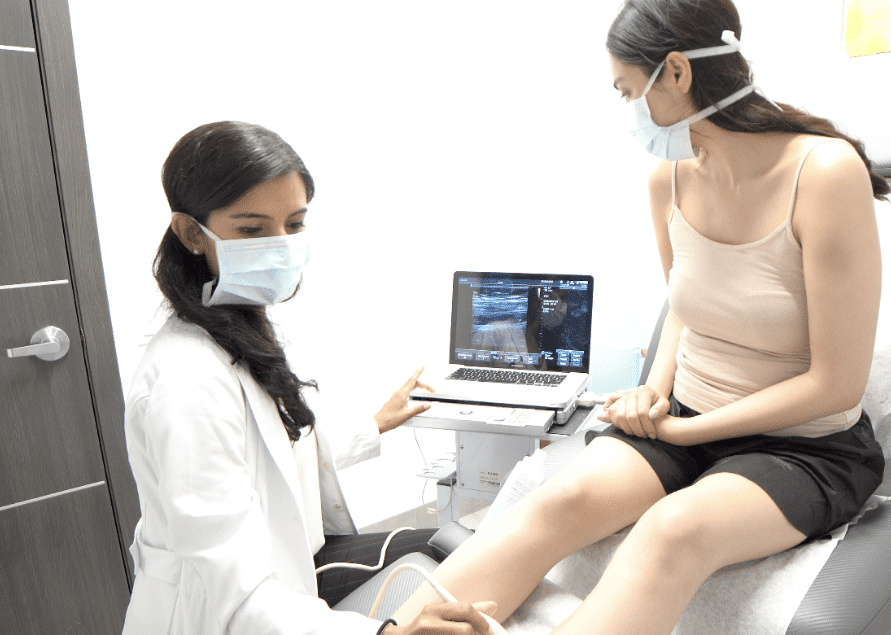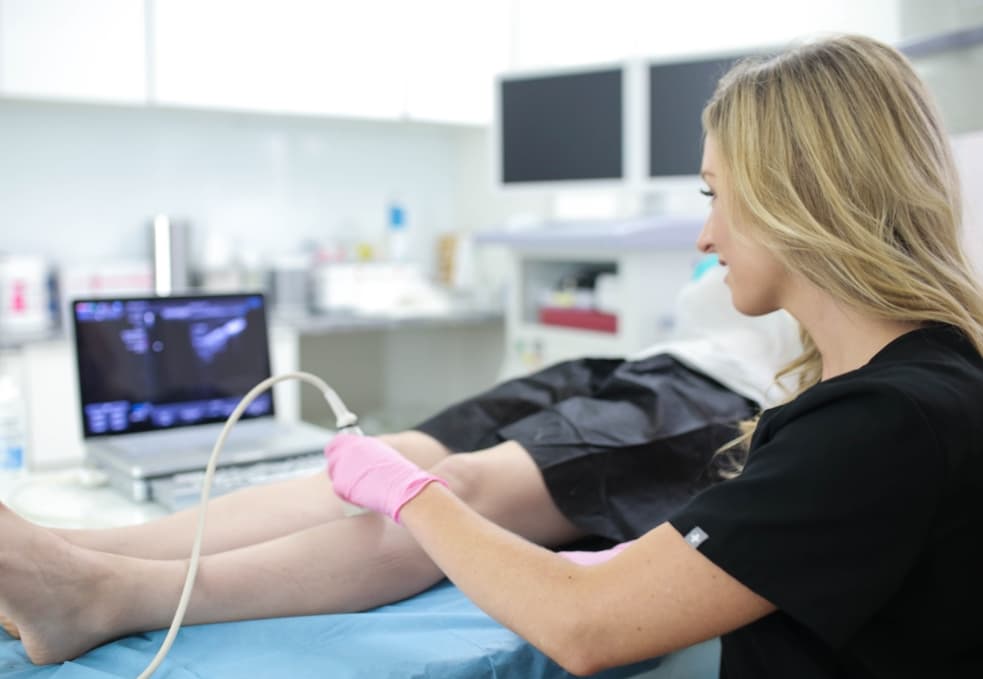What is a vein doctor called?
The official medical terminology for a vein doctor is a “phlebologist,” i.e., a doctor with specialized training in the diagnosis and treatment of vein problems, such as spider veins, varicose veins, and chronic venous insufficiency. The word “phlebologist” comes from “phlebology,” which is the branch of medicine concerned with vascular conditions. However, phlebologists colloquially go by many names — vein doctors, vein specialists, vascular doctors, and vascular surgeons.

What kind of doctor looks at veins?
Phlebologists are the kinds of doctors who look at veins, diagnose the root cause of vein problems, and treat spider veins and varicose veins. Phlebologists can come from all fields of medicine, including cardiology, anesthesiology, dermatology, and more, provided they have relevant training and expertise in vein care. To qualify as a phlebologist, doctors must have advanced training in vein care.
In the past, vein treatments could only be performed by highly-skilled vascular surgeons with specialized training in vascular problems. However, vein care technologies have advanced by leaps and bounds over the past decades, and vein conditions can now be treated using safe, in-office minimally invasive treatments that conclude within an hour or less. Because of the current simplicity of vein treatments, the barrier for entry has significantly lowered.
The low barrier for entry into phlebology means many doctors with minimal expertise in vein care pass off as vein doctors and phlebologists. In most cases, doctors who call themselves “vein doctors” only offer cosmetic treatments for spider veins — they don’t diagnose or treat underlying chronic venous insufficiency. As such, you must be extremely discerning and careful when looking for vein doctors in Long Island.
Our vein centers in Long Island are led by highly-skilled, board-certified vein doctors with specialized training in the latest minimally invasive spider vein and varicose vein treatments. Our vein doctors always diagnose the root cause of your vein problems before curating the appropriate treatment plan, ensuring long-lasting results with a negligible risk of recurrence. Please schedule an appointment to explore your vein treatment options in Long Island.
Do cardiologists treat veins?
Cardiologists often treat vein problems, especially if they have specialized training in vein treatments. If your vein doctor also happens to be a cardiologist, that’s a strong indication that they can diagnose and treat the root cause of your vein problems. However, when you consult the cardiologist, please ensure they specialize in minimally invasive spider vein and varicose vein treatments, such as radiofrequency ablation, endovenous laser ablation, venaseal, sclerotherapy, and clarivein.
What are bulging veins in the legs?
If you have bulging veins in your legs, you probably have varicose veins, also known as varicosities. Varicose veins are dense masses of bulging leg veins that appear in a twisted, tangled, and knotted form on the skin’s surface. They’re usually large and resemble tree trunks, and they might be reddish, bluish, purplish, or skin-colored. Varicose veins are essentially dilated and damaged blood vessels with excessive blood accumulation, indicating underlying chronic venous insufficiency.
When should I be concerned about varicose veins?
If you have varicose veins, you should definitely already be concerned about underlying vein disease. Varicose veins are usually symptomatic of chronic venous insufficiency, a dangerous circulatory disorder with several potential long-term complications. Venous insufficiency is a medical condition wherein the collapse of vein valves leads to the accumulation of blood in leg veins. The continued accumulation of blood in leg veins eventually leads to spider veins and bulging veins in the legs, also known as varicose veins.
Chronic venous insufficiency’s initial symptoms are fairly mild and benign — restless leg syndrome, leg heaviness, frequent leg cramps, leg swelling, leg pain, and spider veins. But as vein disease continues progressing further, the symptoms and complications escalate, eventually leading to skin discoloration, leg ulcers, and deep vein thrombosis. As such, if you notice varicose veins on your legs, please contact a vein doctor in Long Island without delay.
When should I seek treatment for varicose veins?
You should consult a vein treatment specialist in Long Island as soon as you notice varicose veins or other symptoms of vein disease. If varicose veins aren’t treated, they may continue dilating and expanding because of excess blood accumulation. Over time, the varicose veins might be so dilated that even the slightest of pressures leads to burst veins and profuse bleeding, for which you have to be taken to an emergency room. Even if varicose veins don’t burst, you may suffer other complications of vein disease.
Does drinking water help varicose veins?
Drinking water can minimize the risk of varicose veins and chronic venous insufficiency. Drinking plenty of water helps you maintain smooth blood circulation in your legs, and it strengthens the vein valves, thus minimizing the risk of vein disease. However, vein disease can also happen because of numerous other risk factors, such as pregnancy, genetics, age, weight changes, and more, so drinking water doesn’t guarantee a lifetime without varicose veins.
Furthermore, if you already have chronic venous insufficiency, drinking water won’t alleviate your problems. If you have the signs and symptoms of vein disease, the only way to achieve relief from vein problems is through minimally invasive spider vein and varicose vein treatments — our vein doctors curate the ideal treatment plans to alleviate the symptoms of vein disease and improve your overall vascular health.

